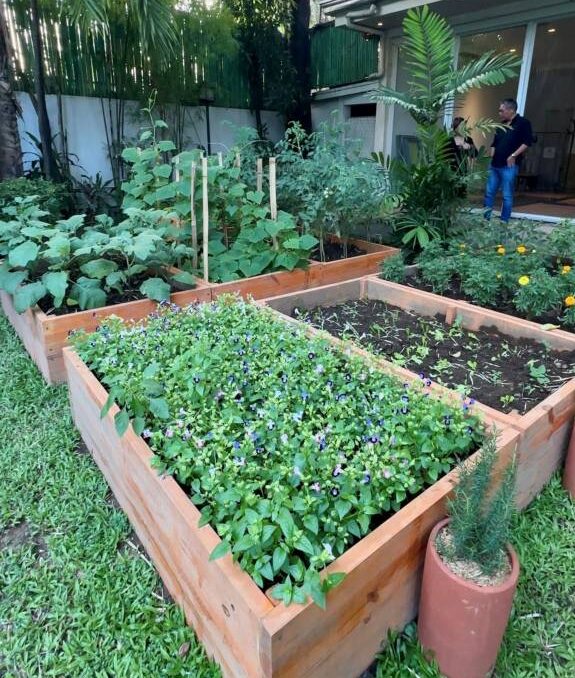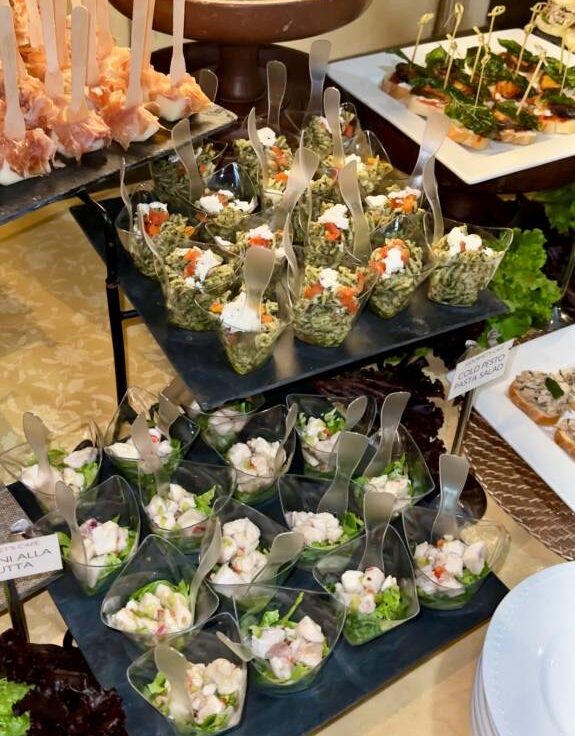Italy’s culinary diplomacy

In a world hungry for connection, food diplomacy is taking center stage. From traditional recipes passed down through generations to innovative culinary creations, nations are using their cuisine to build bridges, foster understanding, and enhance their global image.
Italy Ambassador Davide Giglio kicked off the 9th edition of the Week of Italian Cuisine in the World with a unique initiative. Rather than merely serving Italian hors d’oeuvres in embassy events, he partnered with Gourmet Farms, a pioneering advocate of organic farming, to put up a mini plot of herbs and vegetables in the backyard of the embassy residence. These ingredients are used in Italian cuisine.
Running until Nov. 22, the Week of Italian Cuisine in the World highlights the “Mediterranean Diet and Cuisine of the Origins: Health and Tradition.” This diet emphasizes fresh, locally sourced, seasonal foods that are free from hybridization and genetic modification. By focusing on the Mediterranean diet, renowned for its nutritious and high-quality meals, the event seeks to inspire individuals to adopt healthier eating habits.
The culinary diplomacy began in August when Ernest Escaler, chair and owner of Gourmet Farms (GF), invited members of the diplomatic corps, including Giglio, to a lunch at the GF estate in Silang, Cavite. Guests toured the estate, witnessing firsthand the cultivation of lettuce and culinary herbs on a farm certified by the Department of Agriculture for Good Agricultural Practices.

Farm-to-table
Giglio was impressed by the farm-to-table concept, particularly the vibrant greens from the farm that are served in the salad bar at The Dining Room, an Italian and Mediterranean restaurant led by executive chef Enrico Molera. From this experience, he decided to create an herb garden at the embassy residence to enhance the dishes served there.
By the end of October, the herb garden was flourishing, boasting romaine and iceberg lettuces, arugula, various culinary herbs, tomatoes, eggplants, chili peppers, zucchinis, and edible marigolds, all cultivated in treated wooden boxes.
At the launch of Week of Italian Cuisine in the World, Molera showcased the potential of the garden-fresh produce by creating Mediterranean finger foods. The sweet tomatoes added a burst of flavor to the pesto salad, while the basil enhanced its freshness. The sweetness of the zucchini came out in the grilled bread used in the panzanella salad.

The soft cheeses on the bruschetta were complemented by the homegrown tomatoes, basil, and eggplant, while the mushroom crostini benefited from the warm, peppery notes of sage. The crostini con salsiccia or Tuscan bread with sausage was elevated by the minty flavor of thyme.
No Italian meal is complete without the melanzane parmigiana or tomato-based eggplant with basil and cheeses, plated with fresh lettuces. To refresh the palate, an herb-infused cooler was served.
Mediterranean recipes incorporating the garden-grown herbs will continue to be featured until the Noche Buena at the embassy residence. This approach aligns with the objectives of Italian Cuisine Week by promoting healthy eating habits through a Filipino tradition.

















